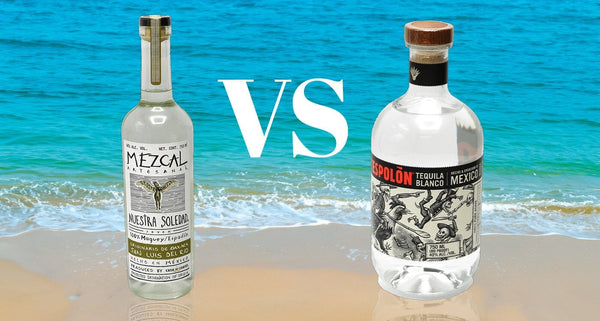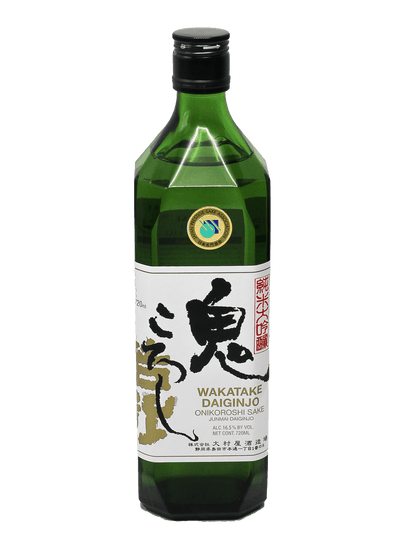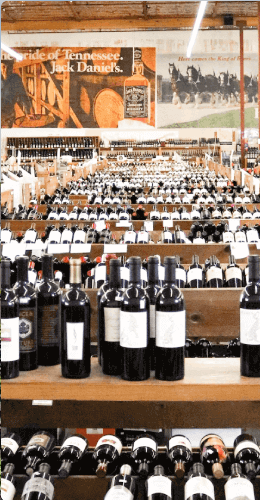Mezcal vs. Tequila: What’s the Difference?

Curious about the difference between mezcal and tequila? This guide breaks down everything from agave types and production methods to flavor profiles and cocktail uses—so you’ll know exactly what to look for when shopping tequila or mezcal online. Discover the best agave spirits, all available at Bottle Barn’s expertly curated online liquor store.
------------
At first glance, mezcal and tequila might seem like close cousins because both are traditional Mexican spirits made from agave. Both also have Denomination of Origin protections and are now global favorites for cocktails and sipping alike. But when you start comparing flavor, production methods, and even the types of agave used, many distinctions appear. Of course, the best online liquor store, Bottle Barn, has a full range of both hand-curated tequilas and mezcals. So, let’s discuss the tequila versus mezcal comparison.
A Shared Heritage, Different Paths
Both mezcal and tequila must be made in Mexico and follow strict regulations that define where and how they’re produced. In the past, decades ago, any agave-based spirit was called mezcal, including tequila. Today, tequila and mezcal are distinct spirits with separate Denomination of Origin protections. Tequila received its own DO in 1974, separate from mezcal; while mezcal got its DO in 1994, Each has distinct rules, separate regulatory councils, and non-overlapping geographical boundaries. They are now legally distinct categories, despite their shared origin in agave distillation.
Indeed, the two spirits begin their life in the same way with the harvest of mature agave plants. But herein lies a key distinction. Tequila can only be made from Blue Weber agave (Agave tequilana), while mezcal can be made from over 30 different agave varieties, including Espadín, Tobalá, Arroqueño, and Tepeztate. This diversity alone creates a broader spectrum of flavors in mezcal, from sweet and floral to earthy and intensely smoky.
Production: Fire and Steam
How the agave is cooked also sets these two spirits apart. For tequila, the agave hearts (piñas) are typically steam-cooked in above-ground ovens or autoclaves. Mezcal, on the other hand, sticks with a traditional method: roasting the agave in underground pit ovens lined with volcanic rocks, wood, and charcoal. This process infuses mezcal with its signature smokiness.
Once cooked, the agave is crushed—by mechanical shredder in tequila production, and often by a stone tahona wheel pulled by mule or horse in mezcal-making. After fermentation, both are distilled (usually twice), but the results differ wildly.
The Difference is A Matter of Maturation
When you want to buy tequila online, it’s important to know that this spirit must age at least two months if labeled reposado, one year for añejo, and over three years for extra añejo. A classic example of the reposado style is reposado Tequila Don Julio. Oak barrel aging lends tequila softer textures than mezcal alongside notes of vanilla, caramel, and spice—especially in aged styles.
Mezcal, in contrast, is most often consumed young (joven) to showcase the flavor of the agave itself. While aged mezcals do exist (reposado and añejo), these styles are less common. Extended aging can mute the characteristics of smoke, mineral, and fruitiness that make mezcal unique. You know when you want to “buy mezcal near me,” the answer in California is Bottle Barn!
Flavor: Smoke vs. Spice
Tequila’s flavor profile tends toward the clean and vegetal accentuated by citrus, pepper, and herbal tones. In aged expressions, you will find rich vanilla, oak, and butterscotch notes. Popular cocktail tequilas like blanco and reposado offer bright agave freshness, perfect for Margaritas or Palomas.
Mezcal’s flavor is more unpredictable. Its smokiness comes from the underground roasting and can be balanced with earth, stone, floral, and even tropical fruit notes. This will depend on the agave and region. A mezcal made from wild Tobalá will taste vastly different from one made from cultivated Espadín, for example.
The spirit’s artisanal nature contributes to this complexity—small-batch, local production methods vary widely. That’s part of mezcal’s charm and mystique.
Worms and Myths
One quirky point of difference: some mezcal bottles include a larva (gusano) inside. This tradition, mostly a 20th-century marketing gimmick, uses the larva of the Hypopta agavis moth, which lives inside agave plants. Supposedly, spotting one brings good luck. Tequila, by contrast, never includes the worm—if it does, skip that bottle.
Cocktails or Sipping?
Tequila’s versatility has made it a mixology staple. Classics like the Margarita, Paloma, and Tequila Sunrise highlight its refreshing, peppery spirit. Mezcal, too, has found a home in modern cocktails, often used to add a smoky twist to classics like the Negroni or Old Fashioned.
That said, mezcal is often better enjoyed neat. Its flavors are nuanced, wild, and deserving of slow sipping from a copita or veladora glass.
|
|
|
|
|
Margarita Cocktail |
Paloma Cocktail |
Tequila Sunrise |
Mezcal vs. Tequila: Alcohol Content
Both spirits hover around 40% ABV, though mezcal tends to run higher, especially in traditional styles that aren’t diluted before bottling. Some artisanal mezcals reach up to 55% ABV, yet still manage a surprising balance.
So, mezcal or tequila? It depends on your mood and your palate.
If you want something smooth, approachable, and great for cocktails, tequila’s your go-to. For something wilder, smokier, and deeply tied to Mexican terroir and tradition, try mezcal. Better yet, explore both. You might find that what starts as a simple comparison turns into a lifelong love of agave spirits. If you're looking for the best tequila brands, start with respected, additive-free brands like Fortaleza, Tequila Ocho, Siete Leguas, El Tesoro, and G4. These producers use traditional methods and showcase the pure character of agave, offering exceptional expressions across blanco, reposado, and añejo styles.
Whether you're shopping for tequila or mezcal, Bottle Barn offers a carefully curated selection of the best tequila brands and the top mezcal brands to help you discover the depth and diversity of these iconic Mexican spirits. Never hesitate to reach out if you have questions!
Related Blogs:
The Five Best Rums for Making Mojitos
What’s All the Fuss about Añejo Tequila?
What Are Non-Alcoholic Spirits?





















Leave a comment